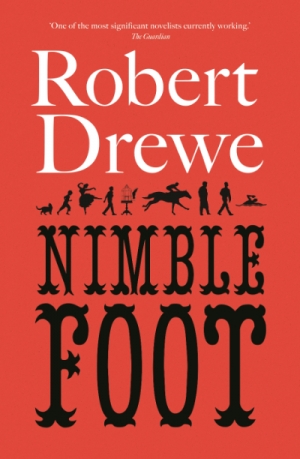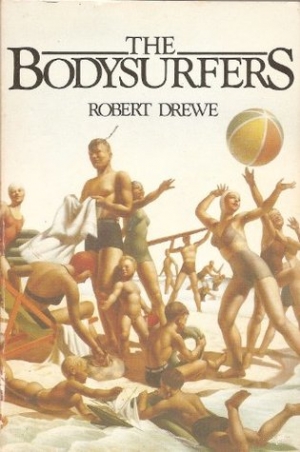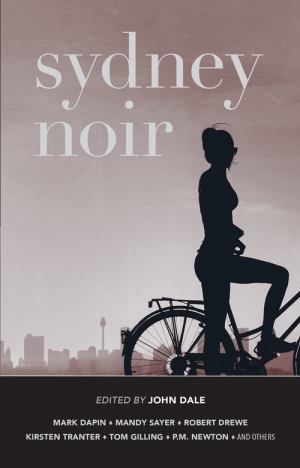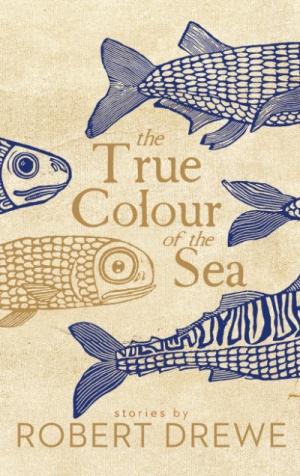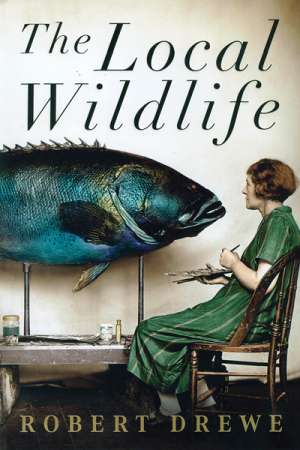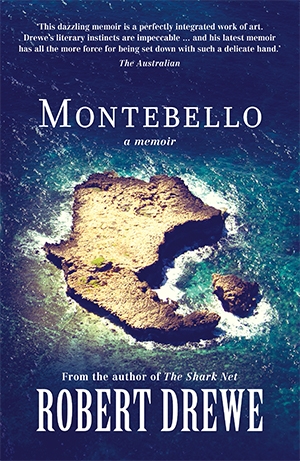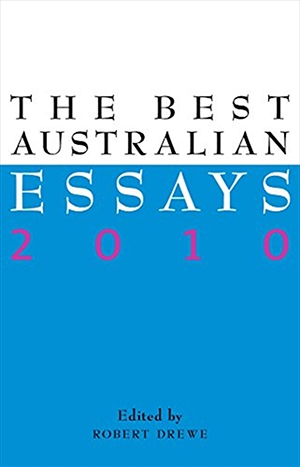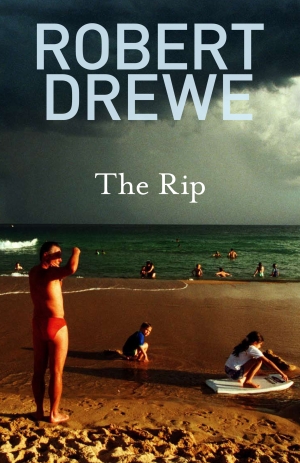Robert Drewe
The ups and downs of biography
Hazel Rowley is the 2007 Australian Book Review/La Trobe University Annual Lecturer. That title is quite a mouthful (the acronym doesn’t bear thinking about), but one that Dr Rowley will handle in her stride, as those who recall her appearances on Australian literary stages will attest.
Dr Rowley – born in England and educated in Australia – taught for many years at Deakin University before moving to the United States. In 1993 she published Christina Stead: A Biography. In her review in The Independent, Doris Lessing said, ‘Christina Stead has long needed a good biographer, and here she is.’ Miegunyah has just issued a revised edition of the biography, in time for Dr Rowley’s Annual Lecture – and her appearance at the Sydney Writers’ Festival.
... (read more)The National Portrait Gallery owns a minuscule sepia studio photograph titled ‘Master Johnny Day, Australian Champion Pedestrian’. From this curious gumnut, Robert Drewe has created a sprawling multi-limbed eucalypt.
... (read more)Robert Drewe on 'One More Waltz: Papers from the Canberra Word Festival'
When I heard I was on a literary panel called ‘Dialogues with the Past’ I was struck by a very familiar feeling, well beyond déjà vu. The sort of feeling best described by Barry Humphries as having the anticipatory excitement of dancing with your mother. In this country, it seems, the Good Old Past is always trotted out for one more waltz.
There has to be a reason for our having a session called something like ‘Dialogues with the Past’ at every literary festival in Australia. What is it with us and history? We’re always being told we lack confidence in the here and now. How much do we still need the past, preferably the nineteenth century, to confirm for us who we are and why? Do we just think we do? We do seem to have – and I certainly include myself in this – an overriding concern with questions of national identity.
... (read more)This collection of twelve stories by the author of The Savage Crows and A Cry in the Jungle Bar seeks to explore and define what Drewe sees as a part of our national psyche, the preoccupation with the coast and with the ‘careless violent hedonism’, as one of the characters puts it, of beach life. In ‘Looking for Malibu’, David Lang, who appears in several of the stories, defines it for a then fellow expatriate in a discussion about criminals on the run. ‘If their enemies were middle-class Australians they’d know where to look for them,’ he says. ‘You know something? When Australians run away they always run to the coast. They can’t help it. An American vanishes, he could be living in New Mexico, Arizona, Colorado, the mountains, the desert, anywhere. Not an Australian-he goes up the coast or down the coast and thinks he’s vanished without a trace.’
... (read more)In 2004, New York-based publisher Akashic Books released Brooklyn Noir, a collection of short fiction written under a specific brief. Stories had to be set in that neighbourhood and feature noir themes: simmering familial revenge, cheating and double-crossing, sexual betrayal, domestic discord, murderous trysts, down-at-heel detectives ...
... (read more)Anthony Lynch reviews 'The True Colour of the Sea' by Robert Drewe
Robert Drewe’s first short story collection, the widely acclaimed The Bodysurfers (1983), opens with a story of the Lang family – children Annie, David, and Max, taken by their recently widowed father for a Christmas Day lunch at a local hotel, where it becomes apparent that their father is on intimate terms with the hotel manageress.
... (read more)Pre-teen and early teen years had me and many others enjoying Ross Campbell’s witty column in the Sunday Telegraph newspaper about the goings-on in ‘Oxalis Cottage’, a fictionalised version of his Sydney home. Robert Drewe’s often hilarious columns for The Age and The Weekend West are a kind of modern equivalent, and a selection of them is brought together to form The Local Wildlife.
... (read more)Brian Matthews reviews 'Montebello: A memoir' by Robert Drewe
Robert Drewe’s first memoir, The Shark Net (2000) – an account of ‘memories and murder’ – opens in the transforming ‘different sunlight’ of a courtroom, a light that seems ‘harsher, dustier, more ancient looking’, making the figure in the dock somehow ‘uglier, smaller’, ‘like a criminal in a B-movie’, the very ‘stereotype of a crook’.
... (read more)Geordie Williamson reviews 'The Best Australian Essays 2010' edited by Robert Drewe
Michel de Montaigne thought little of constancy. It was change in slow motion, he said – ‘a more languishing movement’. The first and still the most miraculous exponent of the essay form instead bragged about his embrace of all that fluctuates: ‘I do not portray being; I portray passing; not a passage of one age to another ... but from day to day, from minute to minute.’
... (read more)In Robert Drewe’s latest collection of stories, people often find themselves caught in rip tides of ill fortune. Snake bites, car accidents, marauding dingoes, unexpected adulteries – these are all part of the rough seas of circumstance that crash without warning over the lives of Drewe’s characters. The dominant note of the collection is this quality of suddenness: out of the blue, bad things happen to good people. Most of The Rip’s characters are benign and likeable enough (even the shonky businessman awaiting trial on fraud charges is a long way from outright villainy), but each of them discovers the world turned upside down by what the title story calls ‘the abruptness of savage chance’.
... (read more)
